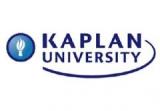Kaplan University’s MPA program enables students to focus on key subject areas
GPN recently checked in with Kaplan University’s Karla Drenner to find out about the Kaplan MPA. Drenner is on the graduate faculty in the Department of Public Administration in the College of Social and Behavioral Science of Kaplan University.
This item is one in a series of descriptions of Master’s of Public Administration (MPA) degree programs. The series on the GPN site outlines the value of those programs to government administrators. 
The Kaplan MPA is designed to help practicing and aspiring administrators develop the skills and techniques needed to provide leadership in a variety of public service fields. The program focuses on teaching students a variety of management and decision-making skills Kaplan grads have the knowledge to become a successful leader in the public sector.
The core curriculum teaches students how to evaluate, implement, and manage policy and spans diverse topics including public administration and management, ethics and leadership, budgeting and the administration of public funds, strategic planning, and applied research. In addition, the program offers students the flexibility to pursue a general MPA or to focus on a concentration in health care management, governmental management, fire science and emergency services or criminal justice.
Below are Karla Drenner’s views.
GPN: Can the Kaplan MPA degree offer new opportunities to our audience of government administrators?
Karla Drenner: The MPA program at Kaplan University is delivered in a flexible, fully on-line format. It allows students to balance the demands of school with their jobs and families. The program’s courses have multiple start dates which give students scheduling flexibility.
The curriculum focuses on a core area of study designed to provide the underpinnings of public administration and analytical methods to assess administrative policy implementation and effectiveness. The courses cover public administration, ethics, leadership, budgeting, strategic planning, and human resource management.
One of the unique aspects of the program is that students can specialize in areas of focused studies: criminal justice, emergency and disaster management, government or healthcare management. Students can also select from other concentrations to create a program based on their interests or career aspirations.
GPN: Is 2017 a great time to earn an MPA for government administrators?
KD: All levels of governments have increased responsibilities and strive to produce better service with fewer employees. This trend is increasing the demand for a highly skilled, professional administrative staff.
Added to growing governmental demands, organizations are facing a qualified labor supply shortage arising from the “silver tsunami” as baby boomers become eligible for retirement. Addressing these concerns is critical, making 2017 the perfect time to earn the MPA.
Kaplan’s MPA program aligns with these opportunities and provides students with the competencies to compete for positions in the public sector.
GPN: Do you have any advice for our readers on choosing an MPA program?
KD: Whether you are a current or aspiring leader in fields like health care, corrections, emergency management, or state/county/municipal governance, choosing a program should be based on personal interests. The program should prepare you for employment or advancement opportunities.
If you have a passion to a make difference in the world, the rewards of a public-service career offered by Kaplan University’s Master of Public Administration student-focused program could help you develop the skills and techniques to provide leadership in a wide variety of public service fields.




















